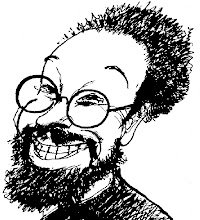Inside Drood, the mammoth new, 784-page novel by Dan Simmons, is a skinny book trying to get out.
Reading it, I felt the way I used to feel, years ago, when I still read books by Stephen King: I knew I was going to hate myself in the morning, but I kept reading anyway. Afterwards, I was tempted to send the author a bill for all the time I was never going to get back.
It's impossible to adequately summarize a book of that length in the space I'm going to give myself here, but the conceit of the book--narrated by the Victorian novelist Wilkie Collins--is that Charles Dickens may be in thrall to a mysterious half-Egyptian named Drood, who's leading Dickens to perform all manner of hellacious acts, including murder.
I read, and liked, Simmons' The Terror, the story of an English expedition lost in the Arctic that also uses historical figures and is based on real events.
Drood, however, seems contrived, and the best I can say for it is that Simmons paints a nuanced, complex portrait of Victorian London, a city of gentlemen in fine clothes, women forced by hunger to prostitute themselves, and heaps of horse manure by the Thames. Obviously, he's done his research.
Which might explain why the book is so long--after researching so much, he hated leaving anything out. Drood did send me, briefly, back to the Dickens biographies I own, and to the library for a biography of Collins, where I found that, instead of inventing, Simmons has simply repeated what others found about both men's lives.
Much shorter, and of more consequence, is In Defense of Food: An Eater's Manifesto, Michael Pollan's follow-up to The Omnivore's Dilemma. The argument here is what Pollan calls the American Paradox: "The more we worry about nutrition, the less healthy we seem to become."
Instead of worrying so much about what we eat, Pollan calls for us to go back to the eating habits of our grandparents and great-grandparents and to eat less meat, more fruits and vegetables, and to get our food from the perimeter of the supermarket, instead of the aisles, which feature processed, laboratory-created food.
One of the most telling anecdotes in the book has to do with the soup experiment. Seems people in other countries rely on how full they feel to know when to stop eating, whereas Americans rely on external cues, like whether the plate or the bag's empty.
One academic--a professor of marketing and nutritional science--did an experiment where he set up bowls of soup to fill from the bottom as people ate.
"Those given the bottomless bowl," Pollan reports, "ate 73 percent more soup than the subjects eating from an ordinary bowl; several ate as much as a quart. When one of these hearty eaters was asked his opinion of the soup, he said, 'It's pretty good, and it's pretty filling.' "
Dan Simmon's Drood is the literary equivalent of that bottomless bowl.
Saturday, March 21, 2009
Subscribe to:
Post Comments (Atom)

No comments:
Post a Comment